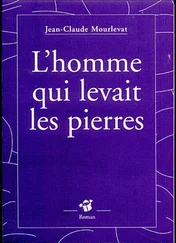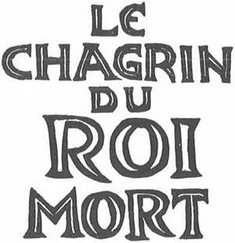Jean-Claude Mourlevat - Winter's End
Здесь есть возможность читать онлайн «Jean-Claude Mourlevat - Winter's End» весь текст электронной книги совершенно бесплатно (целиком полную версию без сокращений). В некоторых случаях можно слушать аудио, скачать через торрент в формате fb2 и присутствует краткое содержание. Год выпуска: 2010, ISBN: 2010, Издательство: Candlewick, Жанр: Старинная литература, на английском языке. Описание произведения, (предисловие) а так же отзывы посетителей доступны на портале библиотеки ЛибКат.
- Название:Winter's End
- Автор:
- Издательство:Candlewick
- Жанр:
- Год:2010
- ISBN:9780763651749
- Рейтинг книги:5 / 5. Голосов: 1
-
Избранное:Добавить в избранное
- Отзывы:
-
Ваша оценка:
- 100
- 1
- 2
- 3
- 4
- 5
Winter's End: краткое содержание, описание и аннотация
Предлагаем к чтению аннотацию, описание, краткое содержание или предисловие (зависит от того, что написал сам автор книги «Winter's End»). Если вы не нашли необходимую информацию о книге — напишите в комментариях, мы постараемся отыскать её.
Winter's End — читать онлайн бесплатно полную книгу (весь текст) целиком
Ниже представлен текст книги, разбитый по страницам. Система сохранения места последней прочитанной страницы, позволяет с удобством читать онлайн бесплатно книгу «Winter's End», без необходимости каждый раз заново искать на чём Вы остановились. Поставьте закладку, и сможете в любой момент перейти на страницу, на которой закончили чтение.
Интервал:
Закладка:
And then he closed his eyes and let himself go.
The gray mouse scurried up and down his leg a little longer, over his back, up to his shoulder. It went back to rub against his face. Not moving now, it stayed there for a few minutes, its soft nose quivering. It was waiting for a sign of life, but there was none. Suddenly, in the distance, came an impact stronger than the others, followed by an ominous crack. The beam barring the gate had just given way. Frightened, the mouse scuttled over to the wall and disappeared down a hole.

Milena sat down on a rock and took off her boots to massage her sore feet. She did that every time they stopped to rest. Gerlinda, the young horse-girl who had called her as beautiful as a princess and never left her side, was already busy lighting a small fire to boil some water.
“Will you sing me something if I make you a mug of tea?” she asked.
Milena smiled. Any excuse would do to get her to sing. She had only to begin, without even raising her voice much, for people to gather around her. And if they knew the tune, they would sing along.
They had started out on the long march to the capital two days ago, and it reminded her of her travels with Bart when they had run away in the autumn. She remembered their elation as they talked the situation over in the immensity of the bare mountains. But she also remembered their terrible uncertainty, their fear of what the next day might bring. Now, on the contrary, she felt that nothing could prevent them from reaching their journey’s end, surrounded as they were by the friendly horse-men with the persistent odor of their wool and corduroy clothing. The natural strength of these people, their kindness, and their peaceable innocence were infectious. They were reassuring; they made you feel confident for no real reason. Milena had felt the same with her consoler, Martha, during her years at the boarding school, but there was only one Martha. Here she had the impression of a huge, multiple, ever-changing body of people, an irresistible force.
As they went on toward the capital, the numbers marching with them grew. Hundreds and then thousands of men, women, and children had rallied to them in small groups making their way through the countryside. Coming down from the hills and out of the woods and fields, they joined in human streams that swelled into rivers. The doors of houses were opened to them as they passed by. They were offered food, their bags were refilled, they slept overnight in barns.
Gerlinda came over with a mug of steaming tea for Milena.
“Now, what about my song?”
“All right, but only for you. I don’t feel like singing for an audience of fifty. Come closer.”
A smile lit up the young horse-girl’s blunt face, and she leaned her ear close to Milena’s mouth. Milena began quietly:
“Blow the wind southerly, southerly, southerly . . .”
But as others came over to hear the song, she rose abruptly, mug in hand. “No, I’ve finished now! Another time . . . this evening!”
She put her boots on and went to join Bartolomeo and Dora, who were sitting a little way off wrapped in their winter coats. Their breath was escaping from their mouths in little blue clouds. The two people I love most in the world, she thought as she went over to them. I only need Helen and Martha here as well and the magic circle would be complete.
“I’m sure Jahn and Faber will have reached the bridge by now,” Bart was saying, sounding impatient. “I should have stayed with them.”
“They’ll send for you if they need you — they promised they would,” Dora replied.
“Yes, I just hope we don’t arrive too late. The winter fights in the arena begin tomorrow morning. Milos may not be due to fight on the first day, but we don’t know. We have to get into the city fast.”
Milena nestled against him. “We must trust the others. We’ll be there tomorrow, after all.”
“Yes. The Phalange will never dare fire on us. We’re unarmed, and there are women and children with us — they won’t be able to do it.”
“No, they won’t,” Milena comforted him. “And you’ll soon see Milos again. You’ve always told me he had a real talent for survival.”
“Yes, so I did. And a talent for happiness too. More so than me.”
“Happiness?” said Dora, joking. “Is there such a thing? It must be so boring!”
They kept close together as they went on along narrow paths and over bad roads during the hours that followed. Gerlinda never left Milena “in case she got lost.” Who was leading their advance? It was impossible to say. They were carried along on the tide. As evening fell, they reached the hills above the city and were amazed to see that the hillsides were teeming with people as far as the eye could see.
They knew that the population had rallied to the Resistance, but the sight of that great crowd surpassed their wildest hopes. How could anyone for a second imagine that the Phalange might be able to resist such a force? A rumor was soon circulating that they would enter the capital at dawn, and until then they must wait and keep warm. Cries of joy were heard, as if the battle were already won. Gerlinda jumped up and down and hugged Milena.
“Are you so pleased with the prospect of a cold night in the open?” Milena asked in surprise. “We’ll all be frozen before sunrise!”
Gerlinda looked at her blankly and then said simply, “Oh no! People will help us.”
She was right, and the night that had promised to be so uncomfortable was a miraculous experience. Within a very short time firewood was found, fires were crackling, and red flames were shooting up into the dark sky. Had Milena feared the cold? She often had to insist on leaving her place close to the fire; people took turns there in an orderly fashion. Had she been afraid they would go hungry? If anything, there was too much to eat! Every bag heaved with loaves of bread, ham, pâté, apples, wine, chocolate! As soon as she sat down, someone would come to kneel behind her and hug her to warm her up. The first time it happened, she thought it was Bartolomeo or Dora or Gerlinda. Who else would venture to take such a liberty? But it was a horse-woman she had never seen before. In her own turn, Milena warmed up people she didn’t know and soon realized that it was as sweet to give as to receive.
At dawn they were all numb, stupefied by drowsiness, tramping up and down on the ground in an attempt to warm their feet up, but they had a sense of having survived together, having reached their journey’s end, and they felt that something great lay ahead. Thin plumes of smoke were still rising from fires that hadn’t been entirely extinguished. Yesterday’s clouds had lifted, and in the biting cold they saw the other hills also covered by thousands of shapes, with figures already on the march on the plain below, and in the distance the sparkling ribbon of the river.
The crowd began to move slowly, and it was good to be advancing in company again. Someone began humming:
In my basket,
In my basket, I have no cherries,
My dear prince.
I have no crimson cherries,
I have no almonds, no. . . .
And everyone took up the song, the tall horse-men and all the others, whether they could sing in tune or not.
“I have no pretty kerchiefs,
No embroidered kerchiefs,
I have no beads, no.
No more grief and pain, my love,
No more grief and pain. . . .”
They all repeated it except for Milena. Their voices rose around her — ordinary, clumsy, hesitant, but all vibrating with fervor and certainty.
Читать дальшеИнтервал:
Закладка:
Похожие книги на «Winter's End»
Представляем Вашему вниманию похожие книги на «Winter's End» списком для выбора. Мы отобрали схожую по названию и смыслу литературу в надежде предоставить читателям больше вариантов отыскать новые, интересные, ещё непрочитанные произведения.
Обсуждение, отзывы о книге «Winter's End» и просто собственные мнения читателей. Оставьте ваши комментарии, напишите, что Вы думаете о произведении, его смысле или главных героях. Укажите что конкретно понравилось, а что нет, и почему Вы так считаете.












